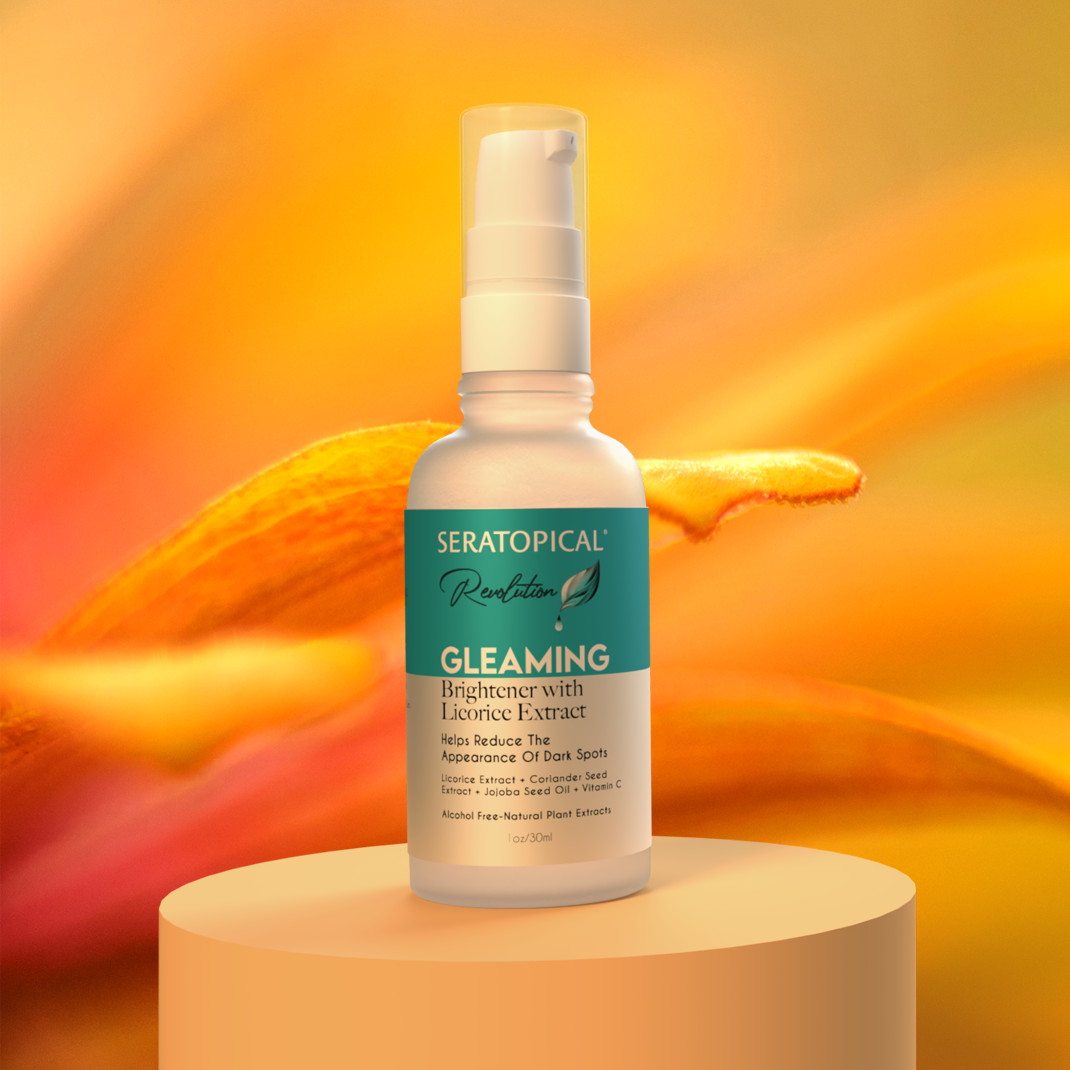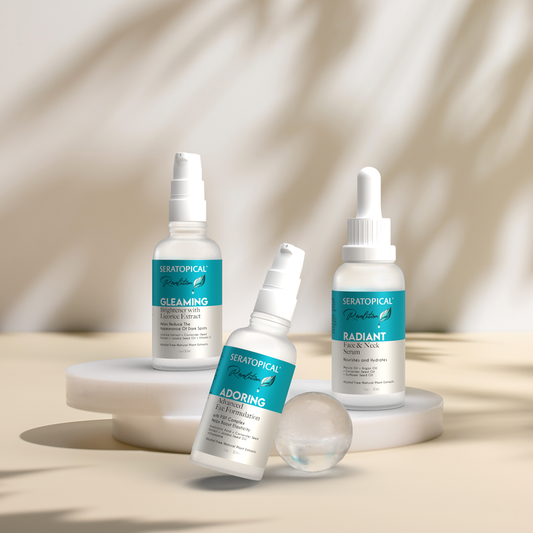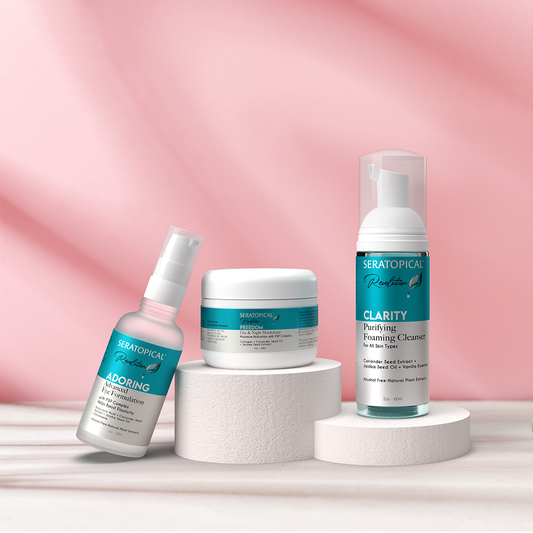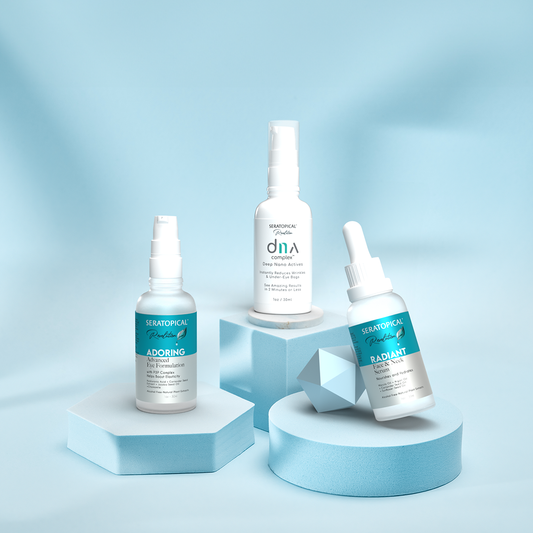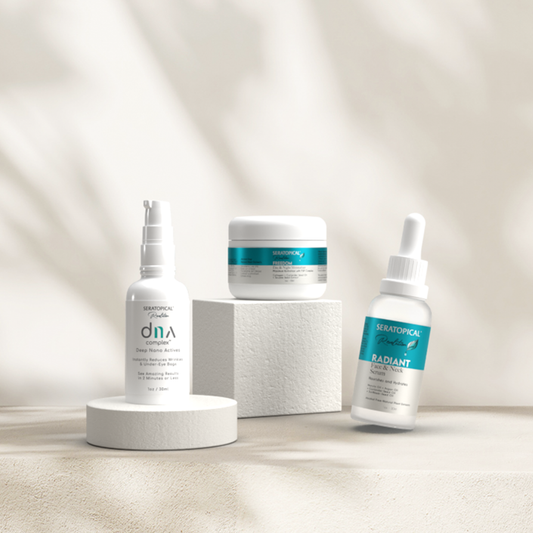When it comes to choosing a serum for your dry complexion, knowing exactly what ingredients play well with your skin is crucial. To help you get the best possible results, we’re breaking down our favorite dry skin face serums, as well as the ingredients you need to look out for (and avoid) when adding a new formula to your routine.
Dry Skin & Its Challenges
Dry skin produces less sebum (your skin’s natural oil) compared to other skin types, leaving it lacking in moisture. This can make it feel tight and uncomfortable, and may also leave the skin rough and flaky.
Additionally, dry skin can be especially prone to becoming dehydrated – meaning your skin’s water content is low. Reduced hydration levels can make fine lines and wrinkles look more visible, and can also contribute to dullness and general skin discomfort.
The challenge of caring for dry skin is ensuring you are targeting your concerns and treating your complexion without further drying it out. While it can be tricky, with the right serums (and a well-rounded skincare routine), you can counteract your skin’s natural dryness to maintain a soft and healthy complexion.
Benefits of Using Face Serums
Serums are formulated with high concentrations of active ingredients that are specifically chosen for their abilities to target certain concerns. By consistently giving the skin a supercharged dose of powerful ingredients, you’ll be able to both see and feel the visible changes in your complexion.
There are serums that are made to address a wide range of issues, including dullness, loss of elasticity, fine lines and wrinkles, dark spots, and more. The best serums for dry skin will be formulated with ingredients known to replenish moisture and hydration levels to ensure the complexion is getting the extra support that it needs.
Essential Ingredients for Dry Skin Serums
No matter what concern you’re looking to target, if you have dry skin, you’ll want to make sure you are using a serum with ingredients that support your skin type, such as:
Plant Oils: Oils are excellent for dry skin, as they can give it that extra boost of moisture that it so desperately needs. They are also loaded with vitamins and minerals that nourish and protect for optimal skin health. Some of our favorite oils for dry skin include marula, jojoba seed, argan, cranberry seed, coriander seed, and sunflower seed oils.
Glycerin and Hyaluronic Acid: These humectants are great for dry skin that is prone to dehydration. They work to attract water to the skin and lock it in, ensuring the complexion stays adequately hydrated.
Ingredients to Avoid
There are also some ingredients that you’ll want to avoid, as they may dry out the complexion or otherwise be harmful to dry skin. This includes:
Alcohol: It’s best to pass on formulas made with alcohol-based ingredients, as alcohol – especially denatured alcohol – can be incredibly dying. Some names to look out for on the ingredients label include SD alcohol, ethyl alcohol, alcohol denat, and methanol.
Parabens and Phthalates: Both parabens and phthalates come with the risk of causing dryness and irritation, so it’s best to seek out clean formulas made without these additives.
Best Face Serums for Dry Skin
One of the best dry skin serums is the Radiant Face & Neck Serum. The non-greasy but deeply hydrating formula helps soften the skin as it smooths fine lines and wrinkles and improves elasticity. It’s also loaded with some of the best ingredients for dry skin, including marula, argan, coriander seed, and sunflower seed oils.
If you’re looking to tackle dullness to unlock an unbelievably glowy complexion, another great option is the Gleaming Brightener. Using the power of ingredients like jojoba seed oil, vitamin C, glycerin, and coriander seed extract, this serum is designed to help diminish the appearance of dark spots while helping to improve hydration and promote collagen and elastin production for even toned and youthful skin.
Beyond being loaded with the best ingredients for dry skin, these serums are also clean and alcohol-free.
Tips for Application
When adding serums to your routine, the biggest thing to remember is that consistency is key. To give your dry skin that extra support, ensure you’re using your serums regularly. Serums can typically be used daily, and many are even suitable for twice daily use. Of course, be sure to refer to the instructions on the product you are using for the best usage directions.
Additionally, make sure you finish off your morning and evening routine with a moisturizer. Moisturizers are a must for all skin types, but are especially critical for dry skin. A good moisturizer will not only seal in your serum, but will also replenish your skin’s moisture levels, ensuring it’s left feeling smooth and comfortable.
The right serum can be dry skin’s secret weapon. Paired with a great foundational skincare routine, a high-quality serum will help you achieve and maintain a healthy, glowing complexion.



